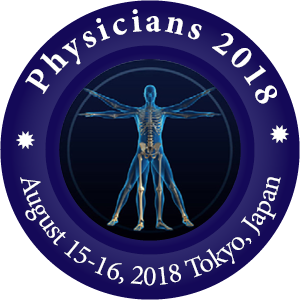Shambhu Prasad Adhikari
Kathmandu University School of Medical Sciences, Nepal
Title: Community based rehabilitation for physically impaired earthquake victims: An evidence based practice protocol and its pre-post experimental study
Biography
Biography: Shambhu Prasad Adhikari
Abstract
A natural disaster like earthquake is a sudden event that causes not only the loss of life but also results mental, emotional and physical disabilities. An earthquake of 7.8 magnitude hit Nepal and injured more than 18,500 people in 2015. There was a critical need to develop rehabilitation protocols for various injuries and rehabilitate the victims at their own community to prevent from life-long disabilities and reduce public health burden. Therefore, evidence-based rehabilitation protocols for various injuries were derived at first to address the victims’ impairments and activity limitations. After a survey, the protocol was administered to 13 victims of one of the most affected community sites, for 60 minutes/day, 12 days in two weeks at their own door. Local resources were used to make the protocols sustainable. An immediate effect of the protocols was evaluated within the group. The World Health Organization Disability Assessment Schedule (WHODAS), numerical pain rating scale and Time Up and Go test (TUG) were used to measure disability level, pain and mobility status respectively. The Wilcoxon signed rank test was used to analyze pre-post data. All participants completed the rehabilitation without adverse effects. The treatment demonstrated significant reduction in disability level (p<0.001, effect size=0.63) and pain level (p=0.007). However, change with the TUG was not significant. The findings of this community based rehabilitation indicated benefits of the treatment and helped to improve the victim’s quality of life. Follow-ups will be continued to explore sustainability and long-term effect of the intervention.

